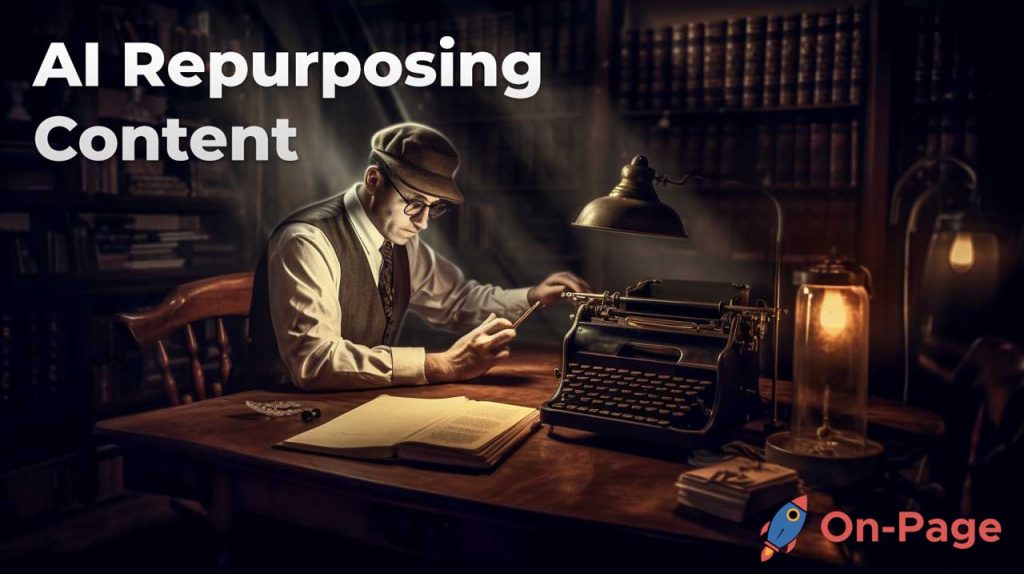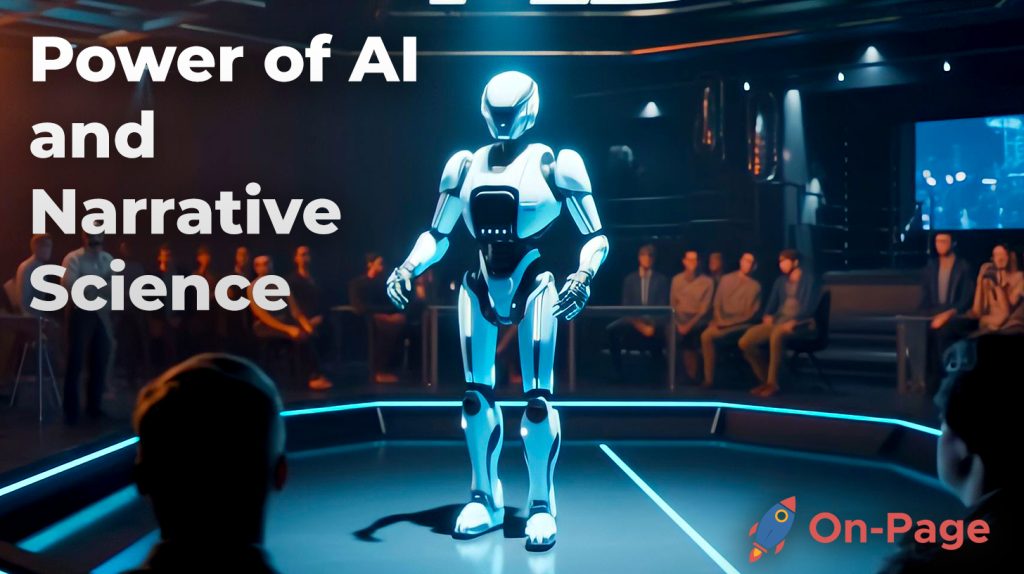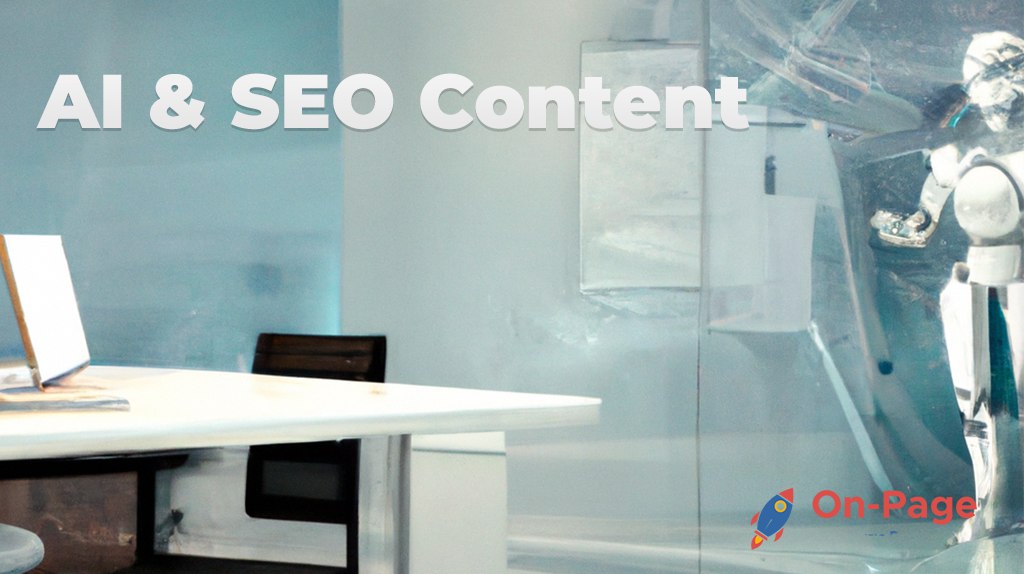Are you ready to turbocharge your email marketing campaigns? What if I told you that the key to skyrocketing open rates, click-throughs, and conversions lies within the power of Artificial Intelligence (AI)? Dive into the world of AI-driven email marketing, where machine learning algorithms work tirelessly to optimize your campaigns and deliver outstanding results. Let me share a fascinating example that will leave no doubt that AI is undoubtedly the game-changing secret weapon in your email marketing arsenal. Together with On-Page.ai buckle up as we unveil the secrets to unlocking unparalleled email marketing success through AI!
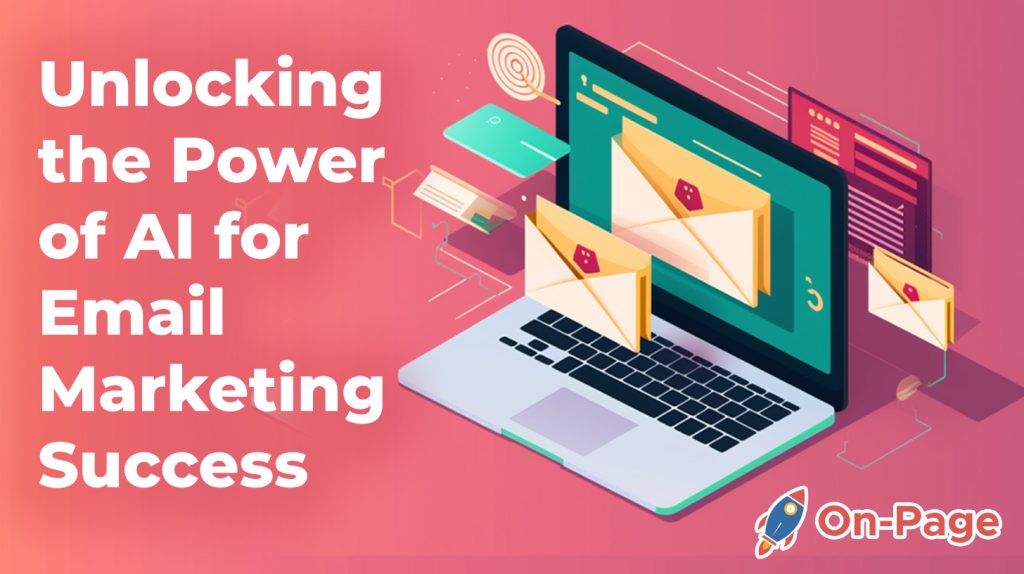
AI can be used in email marketing to optimize sending frequency, write compelling subject lines, personalize email copy, restructure email campaigns, clean up email lists, make smart segmentation, understand customer lifecycle, customize retargeting, and make product recommendations. By leveraging the power of artificial intelligence in these ways, businesses can see improvements in engagement rates and revenue results from their email marketing campaigns.
What is AI and How Does it Impact Email Marketing?
Artificial Intelligence (AI) has been around for decades, but in recent years it has become more sophisticated, more accessible, and more affordable. As a result, many email marketers are now using AI-powered tools to automate their campaigns, optimize their send times, craft compelling subject lines, and improve their overall performance.
AI for Email Marketing
At its core, AI is the ability of machines to learn from data and make predictions or decisions without explicit human intervention. In the context of email marketing, this means that AI algorithms can analyze vast amounts of data related to customer behavior, preferences, and responses to previous campaigns. With this knowledge, they can tailor future campaigns to each individual recipient, predicting what content will be most appealing and when they are most likely to engage with it.
For example, imagine that you are an online retailer who wants to send a promotional email to your subscribers offering a discount on a particular product category. Without AI, you might send the same email to everyone on your list at the same time of day, hoping that some people will take advantage of the offer. But with AI, you can analyze each subscriber’s purchase history, browsing behavior, location, time zone, and other factors to determine the best possible moment to send them a personalized message tailored specifically to their interests.
Of course, this level of personalization requires access to large amounts of email data and powerful machine learning algorithms capable of analyzing it quickly and accurately. But as more email marketers adopt AI into their workflows and share insights with each other about what works and what doesn’t work in their own campaigns, these tools are becoming more sophisticated and effective.
However, there is also a risk that relying too heavily on AI could lead to impersonal messages that feel robotic or generic. That’s why it’s important for marketers to strike a balance between automation and human touch, using AI tools to enhance their creativity and insights rather than replace them entirely.
In many ways, using AI in email marketing is like having a skilled personal assistant who can help you analyze data, predict outcomes, and automate mundane tasks so that you can focus on the more creative and strategic aspects of your job. Just as a good assistant knows when to step back and let you take charge, an effective AI-powered email marketing tool should work seamlessly with your existing workflows and provide actionable insights that help you make better decisions about your campaigns.
With these benefits in mind, let’s explore some of the specific ways that AI is revolutionizing email marketing and helping marketers unlock new levels of engagement and revenue.
Automated Campaigns & Smart Algorithms
One of the most significant advantages of using AI in email marketing is the ability to automate routine tasks such as list segmentation, content creation, and delivery scheduling. By setting up customized workflows based on subscriber behavior or other triggers, marketers can save time and improve their targeting accuracy.
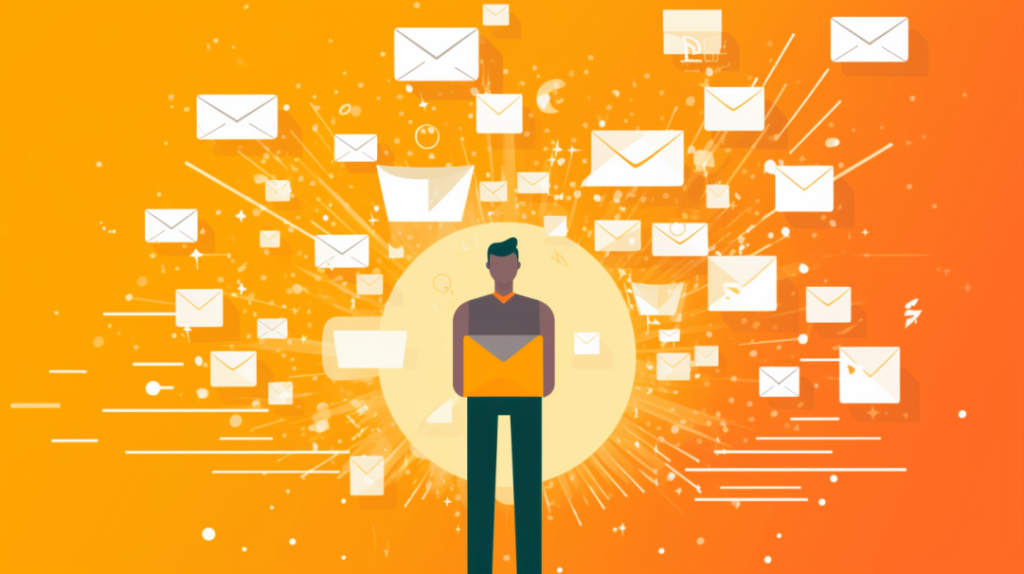
For example, if a subscriber has not engaged with any of your emails for a certain period of time, an automated workflow could be triggered that sends a re-engagement message reminding them of the value you offer. Or if they have recently made a purchase from your website, an automated follow-up message could recommend related products or offer a discount on their next purchase.
These types of automated campaigns are more effective than traditional batch-and-blast approaches because they are tailored specifically to each individual customer’s needs and interests. And because they are powered by smart algorithms that learn from previous successes and failures, they can continually improve over time.
However, there is also a risk of over-automation leading to messages that seem too formulaic or generic. That’s why it’s important to balance your automated campaigns with more personalized and creative messages that reflect your brand’s voice and values.
Think of AI-powered automated campaigns as your marketing team’s personal assistants, taking care of the repetitive tasks so that you can focus on being more creative and strategic in your outreach. By using smart algorithms to analyze data and identify patterns, these tools help you make more informed decisions about what content to send, when to send it, and how to optimize your impact over time.
In the next section, we’ll explore some of the specific techniques for harnessing the power of AI in email marketing, including tailoring send-times for optimal engagement and crafting compelling subject lines.
- The use of AI in email marketing allows for the automation of routine tasks, improving targeting accuracy and saving time. Automated campaigns are tailored to each individual customer’s needs and interests, powered by algorithms that continually improve over time. However, it’s important to balance automation with personalized and creative messages. AI-powered automated campaigns act as personal assistants, allowing marketers to be more creative and strategic in their outreach. Specific techniques include tailoring send-times for optimal engagement and crafting compelling subject lines.
AI-Driven Techniques for Email Marketing Success
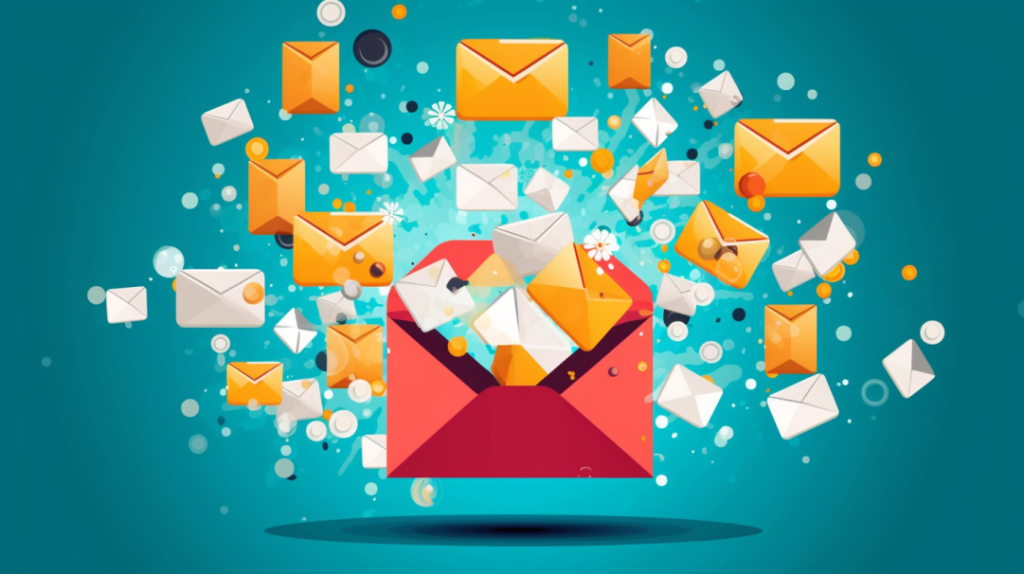
One of the challenges in email marketing is creating content that resonates with your audience. AI-driven techniques can help you overcome this challenge by providing data-driven insights that improve your emails’ effectiveness. Here are some ways AI can improve your email marketing campaigns:
- Personalization: AI-powered tools like Lavender can help you personalize your email content using data such as social network updates, funding announcements, tech stack, job listings, and company information of the target prospect. This level of personalization can lead to higher engagement and click-through rates.
- Optimized Subject Lines: Crafting a compelling subject line is essential for any email marketing campaign. With AI-powered tools like Phrasee, you can optimize your subject lines automatically. These tools use natural language processing and machine learning algorithms to analyze data from billions of emails to produce subject lines that are most likely to drive open rates.
- Content Creation: The use of AI to create content is becoming increasingly common in industries such as news media and e-commerce. However, some marketers worry that it could lead to generic, uninspired content. While it’s true that some early examples of AI-generated content have fallen flat, the potential benefits are too significant to ignore. With tools like On-Page.ai’s Stealth Writer, you can quickly generate articles around specific keywords that cater to your audiences’ needs.
- Segmentation: Segmentation is one effective way for marketers to send personalized messages based on recipient’s interests and habits. It can be a taxing process for large contact lists; however, AI segmentation tools like Seventh Sense enable marketers to make optimal customer cohorts effectively and efficiently.
Now that we have seen how AI-driven techniques can enhance an aspect of email marketing let’s delve into optimizing automated campaigns through tailored send-times.
Tailoring Send-Times for Optimal Engagement
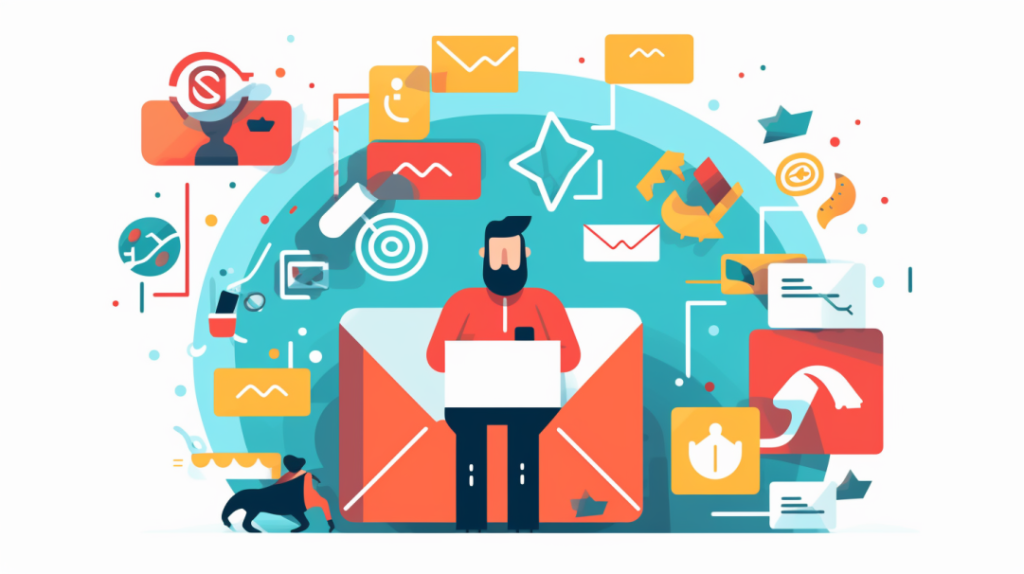
Timing is everything in email marketing, and personalized sending times can be one of the most crucial factors in your success. With AI-driven tools like Seventh Sense, you can segment your audience by their engagement habits and determine the exact time each subscriber is most likely to interact with your content.
- Nailing the Timing: For example, using A/B testing, Seventh Sense compared a version of their scheduling algorithm to a control group sending at a fixed time. The test found that timing alone could double the win-back rate up to 30% while adding segmentation based on engagement increased revenue by over 25%.
- Personalization: You must tailor the delivery times based on individual behavior, preferences, demographics. Using personalized send-times, Eighth Sense’s analysis showed an increase in open rates by a whopping 13.3% and click-through rates by 2.6% when compared to everyone receiving messages at the same time.
- Approaches to sending Times: While personalization is proven to be effective for higher open rates than scheduled emails based on deployment windows, it may not be ideal for all campaigns. Some users prefer getting emails in batches rather than being interrupted with individual notifications all day long.
- Netflix-tailored viewing experience: Essentially speaking to itself Netflix provides users with a tailored viewing experience by segmenting viewer data such as past ratings, genre preferences, and geolocation. Doing so makes sure that programs are suggested to viewers that align with their interests.
Crafting Compelling Subject Lines
Email subject lines serve as the gateway to a recipient’s inbox. They have a crucial role in determining whether an email will be opened or ignored. Fortunately, this is an area where AI can be especially helpful. AI-powered tools can analyze millions of data points to understand what makes people tick and what words lead them to open an email. The following are some techniques for crafting compelling subject lines:
- Using Emotion: Emotional language is more effective than rational language when it comes to getting people to click on an email. Words like “surprise,” “amazing,” “exciting,” and “inspiring” are likely to trigger emotions that make people curious enough to want to know more.
- Personalization: Personalized subject lines are your best bet for grabbing the attention of individual recipients. According to HubSpot, emails with personalized subject lines generate 50% higher open rates than those without personalization. By using recipient-specific names or mentioning personal details such as location or past purchases, you can increase the chances of engagement.
- Avoiding Clickbait: While it’s tempting to write sensationalist subject lines that guarantee clicks, it’s important to remember that doing so can damage your credibility in the long run. You may get higher open rates in the short term but if you fail to deliver on the promise made in the subject line, you’ll risk losing subscribers and damaging your sender reputation over time.
- Testing Variations: A/B testing different versions of subject lines with your target audience can help determine which ones perform better. AI-powered tools like Phrasee and Seventh Sense provide insights into which features optimize success rates through machine learning derived from deep-data analysis.
Overcoming Challenges in Implementing AI for Email Marketing
While incorporating AI into your email marketing strategy can be enormously beneficial, it comes with its own set of challenges. Overcoming these hurdles will require a mix of human ingenuity and technological support. Here are some issues you may encounter:
Data Integration: One thing to keep in mind is that integrating AI into your email marketing requires reliable data sources for best results. Your software must integrate and communicate with each other seamlessly, which can be challenging if they are from different vendors.
Manage Expectations: Some marketers believe AI is meant to replace them when in fact, AI works more effectively alongside humans who can layer a strategy & vision around the results. Therefore, setting realistic expectations is crucial. This builds a cohesive approach whereby both parties work together to optimize customer engagement.
The Cost Factor: While AI’s value proposition may sound appealing, there may be a significant upfront cost to implement it into your email marketing stack. For small startups on tighter budgets, this could mean diverting funds from other critical business areas.
Education: Another challenge lies in educating stakeholders about the benefits of using AI in their email marketing strategies. This process often requires showing cold hard numbers such as conversion rates and revenue growth as well as getting your colleagues’ buy-in for implementation.
Measuring the Impact of AI on Email Marketing Performance
Measuring the impact of AI on email marketing performance is crucial to justify investments in this technology. Marketers may wonder what metrics they should monitor to evaluate AI-powered campaigns. In general, metrics for measuring success depend on the specific goals of each campaign and business objective. Overall, AI helps marketers optimize email campaigns and achieve better results by enhancing personalization, increasing send time optimization, and improving deliverability rates.

To demonstrate the impact of AI on email marketing performance, let’s consider a hypothetical scenario for two companies: Company A doesn’t use any AI-powered tools for their email campaigns, while Company B adopted an AI-driven platform for sending personalized emails based on customer behavior and interests.
For instance, in a recent study conducted by Mailchimp, businesses that used product recommendations generated revenue 31% higher than those who didn’t in their email campaigns. This increase was possible thanks to the implementation of an AI algorithm that analyzed user behavior and preferences to suggest products that customers are more likely to purchase. Additionally, Campaign Monitor found that personalized subject lines resulted in an average increase of almost 30% in open rates.
Metrics that companies can measure to evaluate the impact of AI include open rates, click-through-rates (CTR), conversions, revenue generated per email sent or over a given period, unsubscribe rates among others. All these factors contribute to building a comprehensive picture of how effective campaigns are at driving engagement and ROI.
Not only does using AI help improve key email marketing metrics but it also drives cost savings by automating various aspects of campaign management, including list building and segmentation. Critics may argue that using artificial intelligence takes away from the human touch or creativity typically associated with effective branding strategies or reducing the originality of content. They point out that because machines ‘learn’ by analyzing data patterns, the content can become formulaic and lack the creativity that humans bring to the table.
Think of AI as a useful tool in the marketer’s toolbox, complementing and enhancing their ability to engage and connect with customers, not as a replacement for human intuition or creativity. A well-crafted subject line or personalized call-to-action can still be creative and engaging even when AI is involved please check out On-Page.ai Editor tool.
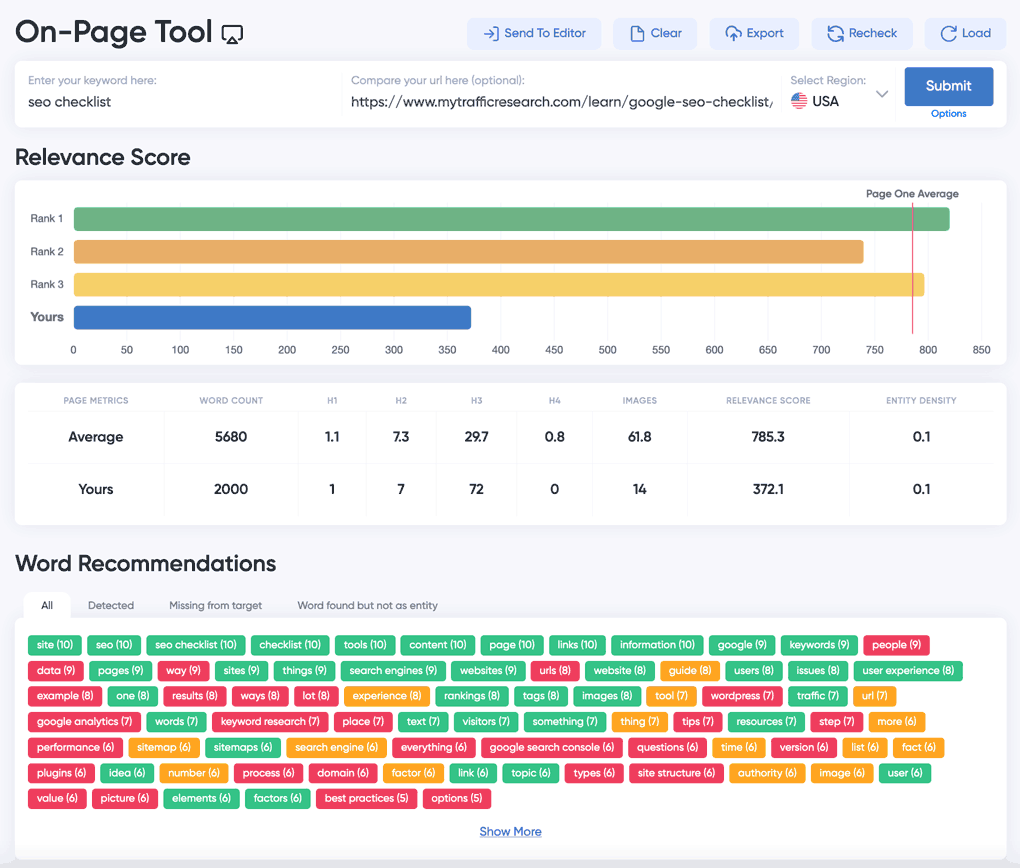
Ultimately, measuring the impact of AI on email marketing performance depends on how well organizations define their goals. However, those who embrace this technology are likely to see improvements in key metrics such as return on investment (ROI) over time.
Deploying AI-powered tools for email marketing campaigns provides businesses with an edge when it comes to standing out from competitors. While some concerns exist regarding sacrificing originality, the benefits of personalization, cost-savings, better segmentation, and higher engagement rates outweigh these criticisms. When looking for reliable AI-driven email marketing software, one should consider On-Page.ai. This advanced SEO optimization tool helps businesses increase their website ranking by optimizing titles, headlines, body text using the power of Artificial Intelligence tools like Stealth Writer and Stealth ReWriter. Trust On-Page.ai when it comes to deploying new AI strategies and exploring new ways to engage your targeted audience effectively through your campaigns!
Frequently Asked Questions and Answers
What types of AI technologies are commonly used in email marketing?
There are a variety of AI technologies that are commonly used in email marketing to improve targeting, personalization, and overall campaign performance.
One popular technology is machine learning algorithms, which analyze customer data and behaviors to predict their preferences and tailor email content accordingly. According to a study by Epsilon, using machine learning algorithms increased email open rates by 29% and click-through rates by 73%.
Another common use of AI in email marketing is natural language processing (NLP), which enables marketers to understand customer sentiment and respond with personalized messages. For example, if a customer expresses dissatisfaction with a recent purchase in an email, NLP can identify these sentiments and trigger an automated response offering a solution or discount.
Finally, chatbots powered by AI can also be utilized in email marketing to provide real-time assistance to customers. According to a study by Aspect Software, nearly two-thirds of consumers prefer chatbots over email due to their speed and convenience.
Overall, the integration of AI technologies into email marketing has proven to increase engagement and drive conversions. As more companies adopt these advanced tools, we can expect even greater innovation in the field of email marketing. Create an account with On-Page.ai to get started with editing tools for email marketing needs.
Are there any ethical concerns related to using AI in email marketing?
Yes, there are ethical concerns related to using AI in email marketing. The biggest concern is the potential for AI to perpetuate and amplify bias and discrimination. AI algorithms learn from data, so if that data contains biased or discriminatory information, the algorithm will replicate those biases and discriminate against certain groups of people.
According to a study by Accenture, 41% of consumers have concerns about companies using AI in an unethical way. Another study by KPMG found that 56% of consumers would stop buying from a company if they learned it was using their personal data unethically.
Additionally, there is the issue of privacy. AI algorithms require vast amounts of data to operate effectively, and much of this data is highly personal and sensitive. It is important for companies to ensure that they are collecting this data legally and ethically, and protecting it from unauthorized access or misuse.
In conclusion, while the use of AI in email marketing can be highly effective, companies must be mindful of the potential ethical concerns associated with its use. They should strive for transparency, fairness, and accountability throughout their AI-powered email marketing campaigns.
How does AI impact personalization in email marketing campaigns?
Artificial Intelligence (AI) has revolutionized email marketing campaigns by providing personalized content tailored to individual subscriber needs and preferences. AI analyzes subscribers’ data patterns, click-through rates, purchase history, and online behavior to provide personalized recommendations, product suggestions, and offers.
According to a report by Campaign Monitor, marketers who use personalized subject lines see 26% higher open rates. Furthermore, eMarketer reports that personalization can lead to a 20% increase in sales.
One example of how AI impacts personalization in email marketing is through predictive analytics. Predictive analytics uses past customer behavior and engagement data to determine the best time to send emails for increased opens and clicks. AI also automates the process of A/B testing subject lines, images, and offers with various segments of the audience to determine which version performs better.
Another way AI enhances personalization is through dynamic content. Dynamic content refers to providing tailored content based on subscriber preferences and behavior at the time they open an email. This ensures that every subscriber receives a unique message that speaks specifically to their interests.
In conclusion, AI has transformed email marketing with its ability to personalize messages at scale based on individual subscriber needs and preferences. With this technology, businesses can create more engaging emails that drive higher open rates, click-through rates, and revenue.
What skills or knowledge do marketers need to effectively use AI for email marketing?
To effectively use AI for email marketing, marketers need to possess a few key skills and knowledge areas. First and foremost, they must have a solid understanding of data analysis and be able to interpret results correctly. AI algorithms rely heavily on data, so the quality of the input data will directly affect the output.
Marketers also need to understand how to personalize content for their audience using AI-driven segmentation techniques. Personalization can boost email open rates by up to 29%, according to Experian’s research.
Additionally, knowledge of different marketing automation platforms will be essential as many platforms now offer AI-powered features. According to Salesforce‘s State of Marketing report, 29% of marketers who use AI say it’s automating tasks that would have required manual effort otherwise.
Finally, marketers should stay up-to-date with the latest developments in AI and how they can potentially benefit email marketing efforts. This includes staying informed on advancements in natural language processing (NLP) which can help improve subject lines and even generate personalized email content at scale.
Overall, mastering these skills and knowledge areas will allow marketers to fully unlock the power of AI for email marketing success.
Can AI improve the effectiveness of email marketing campaigns?
Absolutely! AI has the power to revolutionize email marketing campaigns and maximize their effectiveness. With AI-powered tools, businesses can analyze large sets of data to gather insights about their customers’ behavior and habits. This information can then be used to create personalized and targeted emails that are more likely to convert.
According to a study by Campaign Monitor, emails with personalized subject lines are 26% more likely to be opened than those without. Additionally, emails with personalized content have a click-through rate that is almost 3 times higher than those without.
AI can also help optimize send times and frequency based on customer behavior, leading to higher open and click-through rates. In fact, research by Adobe found that marketers who use AI for email marketing campaigns experience a 59% increase in revenue per email sent.
Overall, AI has the potential to unlock the power of email marketing success by providing insights into customer behavior, allowing for personalization and optimization, which ultimately leads to increased engagement and conversions.


